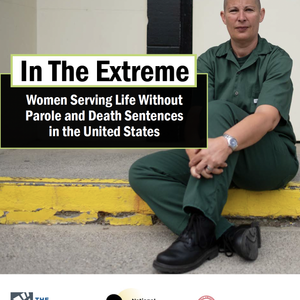
The American Bar Association’s Criminal Justice Section has released its annual report on issues, trends, and significant changes in America’s criminal justice system. The new publication, The State of Criminal Justice 2018, includes a chapter by Ronald J. Tabak, chair of the Death Penalty Committee of the ABA’s Section of Civil Rights and Social Justice, describing significant death penalty cases and capital punishment developments over the past year. Tabak reports that 2017 had the second lowest number of death sentences (39) imposed in the United States in four decades – trailing only the 31 death sentences imposed in 2016. Two-thirds of these death sentences were imposed in just five states (California, Arizona, Nevada, Texas, and Florida), with nearly one-third of those sentences emanating from just three counties (Riverside, California; Clark, Nevada; and Maricopa, Arizona). Quoting Duke University Law Professor Brandon Garrett, Tabak writes that “‘jurors are increasingly reluctant to impose [a death sentence]’… where effective defense counsel have presented evidence about defendants’ mental illness, childhood abuse, and other facts that some juries – but far from all – have viewed as mitigating.” The chapter notes that local voters in states including Alabama, Florida, Texas, Louisiana, and Pennsylvania have replaced prosecutors in counties known for their heavy use of the death penalty with new district attorneys who are “far more skeptical about seeking death sentences.” Tabak also notes that the number of executions in 2017 (23) was the second-lowest number since executions resumed in the U.S. in the late 1970s, and four states – Texas, Arkansas, Florida, and Alabama – accounted for 74% of all 2017 executions. After discussing issues raised by executions in 2017, such as Arkansas’s rush to execute eight prisoners in two weeks or particularly problematic lethal injections, Tabak highlights “geographic, racial, and economic disparities, and other arbitrary factors, in implementing capital punishment,” the growing movement to “preclude executions of people with mental illness in particular situations,” and other major legal and legislative developments that may affect death penalty litigation. Regarding the future of capital punishment, Tabak writes, “There is ever greater appreciation of serious problems with the death penalty’s implementation. Increasingly, the death penalty in practice has been attacked by people who have served in the judiciary or law enforcement, taken part in executions, written death penalty laws, or are politically conservative.” Ultimately, he concludes, “[O]ur society must decide whether to continue with a penalty implemented in ways that cannot survive any serious cost/benefit analysis.”
(Ronald Tabak, Capital Punishment, in The State of Criminal Justice 2018, American Bar Association Criminal Justice Section, July 2018.) See Studies.


